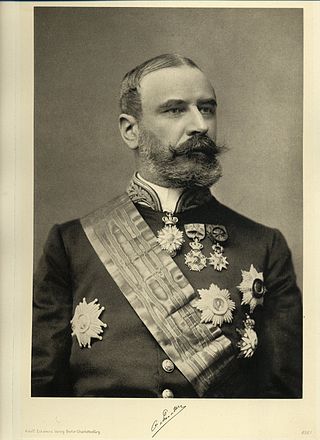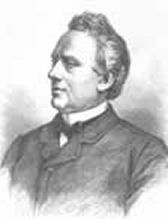
General elections were held in Belgium on 23 May 1965. The result was a victory for the Christian Social Party, which won 77 of the 212 seats in the Chamber of Representatives and 44 of the 106 seats in the Senate. Voter turnout was 91.6%. Elections for the nine provincial councils were also held.

Full general elections were held in Belgium on 14 October 1894, with run-off elections held on 21 October 1894.

Partial legislative elections were held in Belgium on 22 May 1898, with run-off elections held on 29 May. Under the alternating system, elections for the Chamber of Representatives were held in only four out of the nine provinces: Hainaut, Limburg, Liège and East Flanders. Thus, only 75 seats out of the 152 seats in the Chamber of Representatives were up for election. The Catholic Party retained their absolute majority.
Partial general elections were held in Belgium on 25 May 1902. The result was a victory for the Catholic Party, which won 54 of the 85 seats up for election in the Chamber of Representatives. Voter turnout was 95.7%.
Full general elections were held in Belgium on 2 June, 1912.

General elections were held in Belgium on 24 May 1936. The result was a victory for the Belgian Labour Party, which won 70 of the 202 seats in the Chamber of Representatives and 39 of the 101 seats in the Senate. Voter turnout was 94.7%.

Partial general elections were held in Belgium on 8 June 1847. The result was a victory for the new Liberal Association, which had been formed the previous year. It won 33 seats to the Catholics' 21, as the latter were split into dogmatic and liberal groups. Only 1% of the country's population was eligible to vote.

General elections were held in Belgium on Tuesday 14 June 1892, the first full general elections since 1870 and the last before the introduction of universal male suffrage prior to the 1894 elections. The result was a victory for the Catholic Party, which won 92 of the 152 seats in the Chamber of Representatives and 46 of the 76 seats in the Senate. Only 2.2% of the country's population were eligible to vote.

General elections were held in Belgium on 11 August 1864, the first full general elections since 1857. The snap elections were called upon the loss of a parliamentary majority for the liberal government of Charles Rogier and a hung parliament, following the death of liberal representative Charles Cumont on 10 July 1864. In the last few parliamentary sessions preceding the elections, all Catholic members quit the Chamber, resulting in it not being quorate. The Chamber was disbanded by order of 16 July.

Partial general elections were held in Belgium on 12 June 1866. In the elections for the Chamber of Representatives the result was a victory for the Liberal Party, which won 70 of the 122 seats. Voter turnout was 70%, although only 51,465 people were eligible to vote.

General elections were held in Belgium on 9 June 1868. In the elections for the Chamber of Representatives the result was a victory for the Liberal Party, which won 72 of the 122 seats. Voter turnout was 55.6%, although only 55,297 people were eligible to vote.

Partial general elections were held in Belgium on 13 June 1876. In the elections for the Chamber of Representatives the result was a victory for the Catholic Party, which won 67 of the 124 seats. Voter turnout was 67.5%, although only 63,278 people were eligible to vote.

Partial general elections were held in Belgium on 8 June 1880. In the elections for the Chamber of Representatives the result was a victory for the Liberal Party, which won 74 of the 132 seats. Voter turnout was 67.2%, although only 62,936 people were eligible to vote.

Partial general elections were held in Belgium on 14 June 1859. The result was a victory for the Liberal Party, which won 69 of the 116 seats in the Chamber of Representatives and 31 of the 58 seats in the Senate. Voter turnout was 55.9%, although only 49,672 people were eligible to vote.

Partial general elections were held in Belgium on 9 June 1863. The result was a victory for the Liberal Party, which won 59 of the 116 seats in the Chamber of Representatives and 33 of the 58 seats in the Senate. Voter turnout was 74.5%, although only 52,519 people were eligible to vote.

Partial general elections were held in Belgium on 9 June 1874. The result was a victory for the Catholic Party, which won 68 of the 124 seats in the Chamber of Representatives and 34 of the 62 seats in the Senate. Voter turnout was 64.1%, although only 52,074 people were eligible to vote.

Partial general elections were held in Belgium on 11 June, 18 June and 15 July 1878. The result was a victory for the Liberal Party, which won 72 of the 132 seats in the Chamber of Representatives and 36 of the 66 seats in the Senate. Voter turnout was 62.5%, although only 56,640 people were eligible to vote.

Partial general elections were held in Belgium on 13 June 1882. The result was a victory for the Liberal Party, which won 79 of the 138 seats in the Chamber of Representatives and 37 of the 69 seats in the Senate. Voter turnout was 75.1%, although only 55,517 people were eligible to vote.

Legislative elections were held in Belgium in June and July 1884, for partial Chamber and full Senate elections respectively. Voter turnout was 79.1% in the Chamber of Representatives elections, although only 69,276 people were eligible to vote.
A landslide victory is an election result in which the winning candidate or party achieves a decisive victory by an overwhelming margin, securing a very large majority of votes or seats far beyond the typical competitive outcome. The term became popular in the 1800s to describe a victory in which the opposition is "buried", similar to the way in which a geological landslide buries whatever is in its path. A landslide victory for one party is often accompanied by an electoral wipeout for the opposition, as the overwhelming support for the winning side inflicts a decisive loss on its rivals. What qualifies as a landslide victory can vary depending on the type of electoral system, as the term does not entail a precise, technical, or universally agreed-upon measurement. Instead, it is used informally in everyday language, making it subject to interpretation. Even within a single electoral system, there is no consensus on the exact margin that constitutes a landslide victory.












